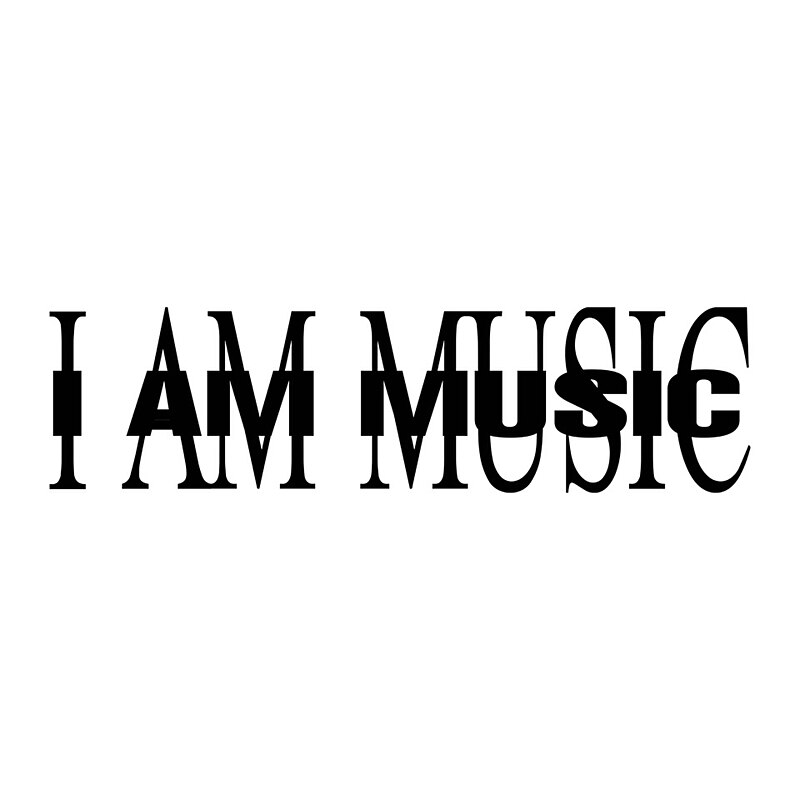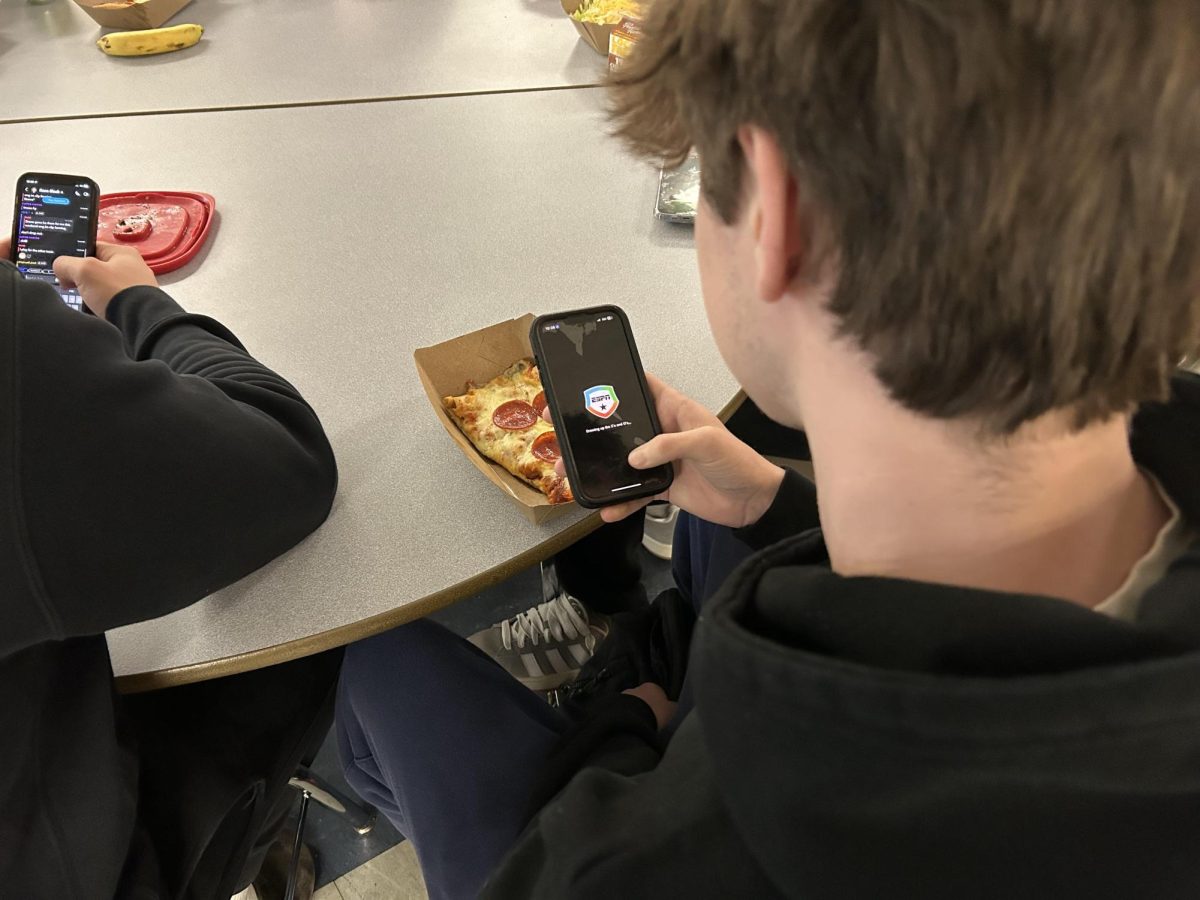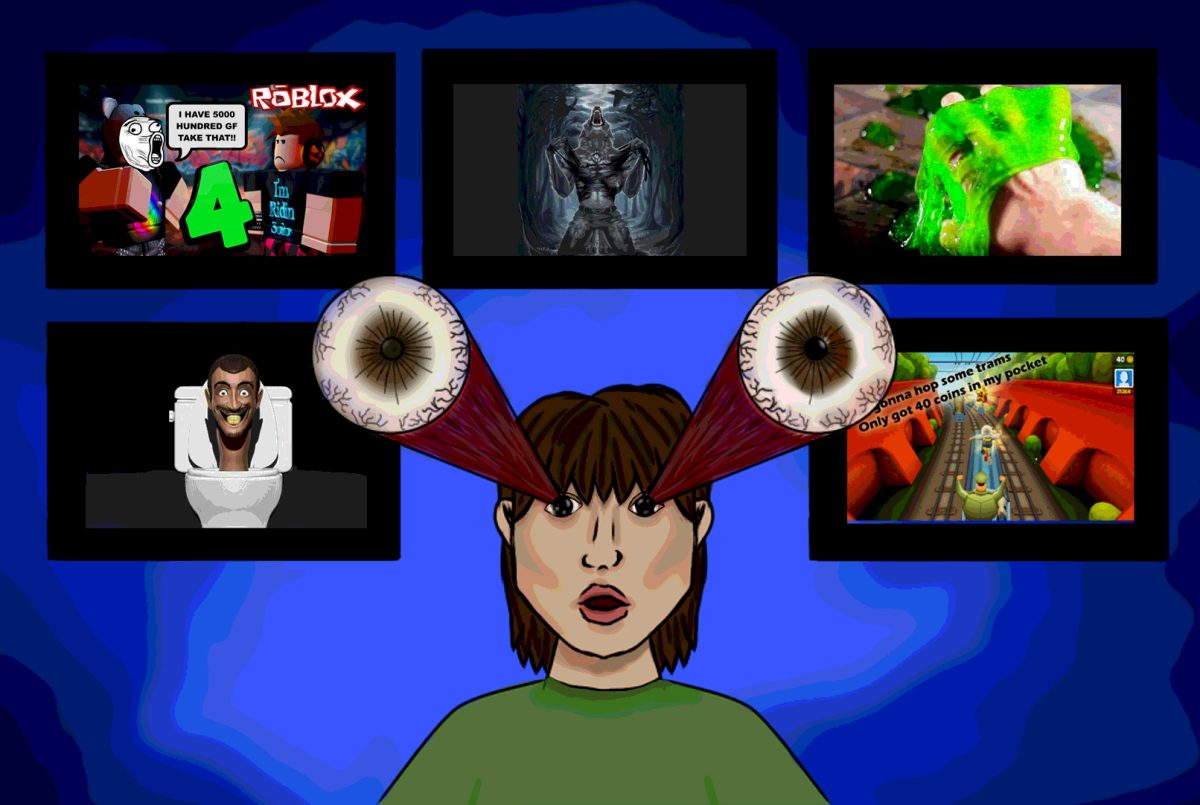
Imagine lying awake at night, unable to fall asleep. You toss and turn but can’t seem to get your mind to settle down. You eventually lie on your back and stare at the ceiling, cursing yourself for the lack of sleep you’re getting at that very moment. You wonder what can you do to get your body to shut down. Something could have disrupted your circadian rhythm, the internal cycle that tells you when to sleep and when to get up.
Ever wonder why on a nice Saturday morning you wake up at 8:00 a.m. instead of sleeping in like you had planned? That’s your inner clock telling you it’s time to rise and shine. You can either choose to ignore it or wake up when it tells you to, but the amount of time you spent on your phone could have been the problem.
The amount of light that is transferred to your eyes delays the processing of the sleep hormone, melatonin and causes you to stay awake longer. This light is called blue light, the shortest wavelength on the visible light spectrum, that is transmitted from your phone to your eyes which can cause damage over time. One of the major problems is digital eyestrain syndrome which can lead to blurry vision, difficulty focusing, dry and irritated eyes, headaches, neck pain and back pain.
Blue light causes harm to your circadian rhythm, delaying your sleep by a few hours as it stops your body from processing melatonin, the hormone produced by the pineal gland in your brain that regulates sleep and wakefulness.
Blue light can be found on many devices including digital devices such as flat screen TVs, smart phones, and computers.
“Yeah, it will affect the vision but no one’s gonna stop doing it. It’s still gonna happen no matter the warnings. People are still gonna stay on their phones,” said junior Zavionna Woodruff on whether or not students would stop looking at their phones before bed.
Woodruff agrees that even if people know about the risks of blue light, she and everyone else, would still continue using their phones.
Blue light helps regulate your circadian rhythm, the part of your body that regulates sleepiness and wakefulness, during the day by keeping you focused on your tasks and lifting your mood. It also helps with memory and cognitive function.
“I already have terrible eyes so it doesn’t bother me personally, that much,” continued senior Beth Gbogi, “but I can see this to be cause to limit screen time for younger ones.”
The cons outweigh the pros, but there are ways to still use your technology while getting little damage to your eyes: turn down the brightness of your device, switch to reading a book for an hour before going to bed, turn off your phone two hours before sleeping, use devices with smaller screens, avoid looking at bright screens or use dim red light for night lights because red light has longer wavelengths and causes little to no damage to your eyes.
That being said, there’s nothing to stop you from using your devices before bed. There are some things you could accomplish in this time instead of staring at your phone, one being to read that book that you’ve been meaning to get around to. Another thing you could do, if you don’t like reading, is start talking to your parents or play with your pets, anything to give your eyes a rest from the daily staring contest we have each day with our technology.
Even if it’s only for a few minutes, you’ll find yourself more rested and have less time to complain about how little sleep you got. It all takes just a little effort and control, and soon you’ll be shaking your head at your friends the next time they’re up late and whining about how they can’t get to sleep.







